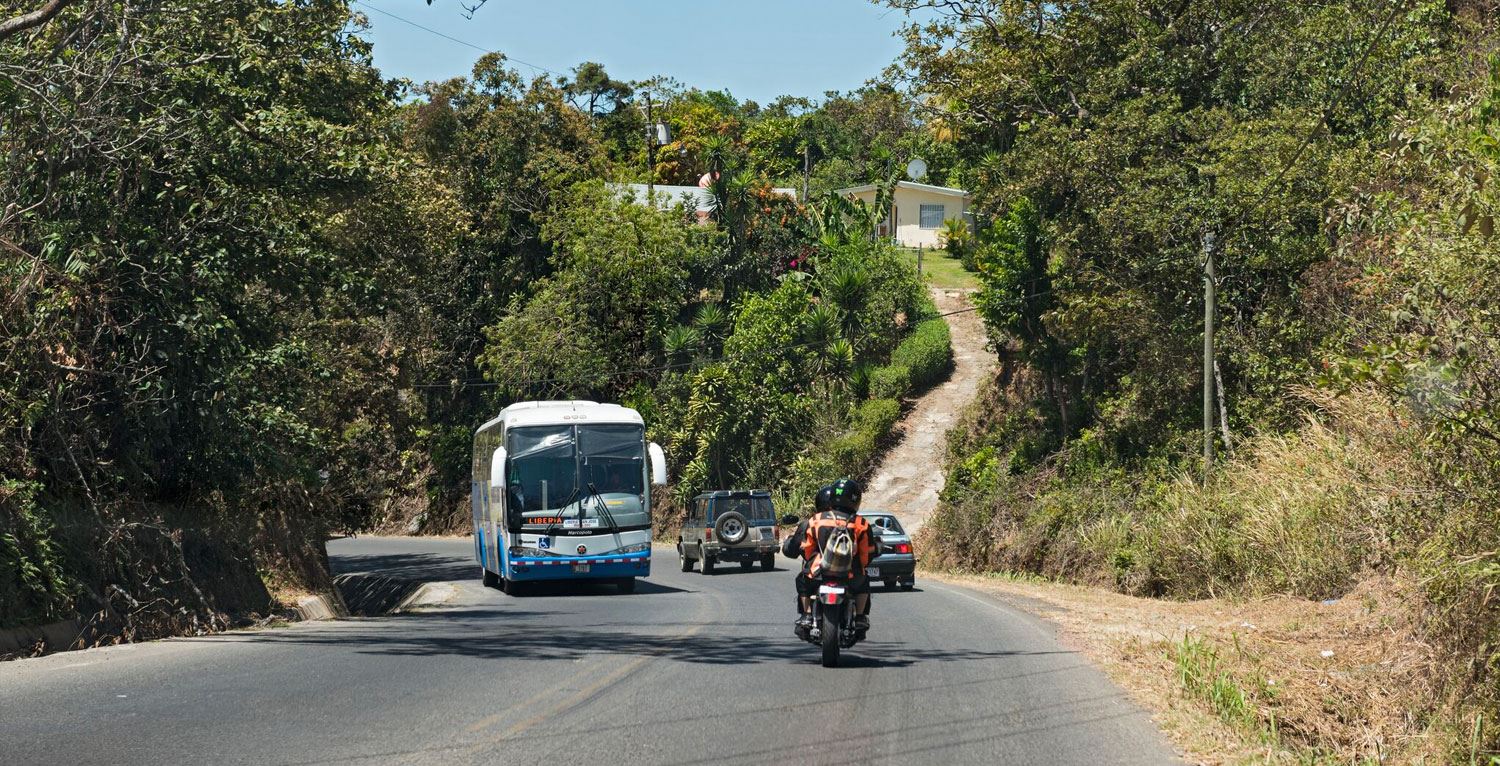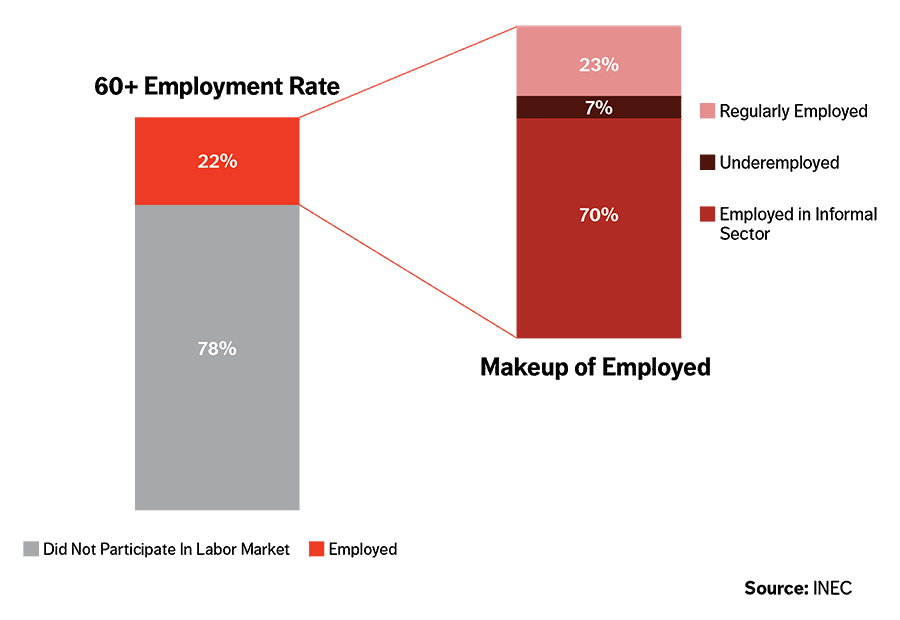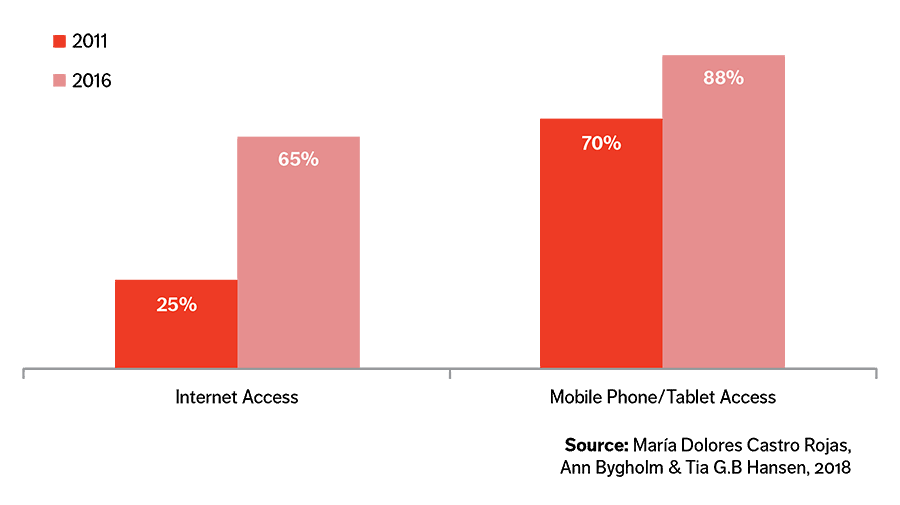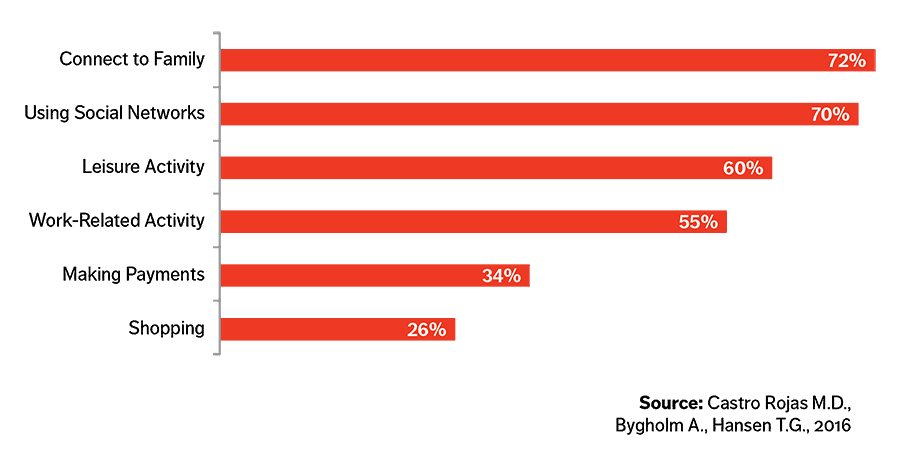Ecosystem for Policy and Social Innovation
For 70 years, Costa Rica has followed a deliberate and consistent approach to social policy and human development, cultivating an ecosystem for innovation based on principles of democracy and universalism, a holistic approach to human welfare and sustainable development, and collaborative engagement. With the abolition of the military in 1948, the government turned its focus to internal security and strengthening the nation from within. This included broad investments in human welfare, such as health education and environmental protection for all people living in Costa Rica. That commitment, coupled with political stability, has enabled relative peace and social development in an otherwise volatile region.
The unique commitment to human welfare and a principle of universalism—that all people, regardless of age, income, or other differentiating factor, should have equal access to high-quality social services as a basic right—encapsulates the governing ethos and as such has been enshrined into the country’s constitution. The government and its partners seek to establish alliances with global institutions and aging experts to incorporate best practices and to implement more coordinated and robust programs that are tailored to the unique and evolving needs of Costa Rica’s aging population.
“Not only is working with government institutions important, but collaboration with NGOs and foundations are also vital to ensuring that the programs develop.”
Driving Forces of Innovation and Cross-Sector Collaboration

Community Social Infrastructure
As is true across the region, in Costa Rica, family typically provides the primary social infrastructure for older adults, as multiple generations traditionally live together. In 2017, 85 percent of older adults in Costa Rica age 65 or older lived in households with two or more people, with 15 percent of those families consisting of five or more. However, while the prevalence of multigenerational family units has been the norm, that structure is changing. The INEC indicates that for 2017 approximately 15 percent of adults age 65 or over (77,731 adults) live alone, and of those, 61 percent are women.
The number of older adults living alone is also increasing. As they live longer, healthier lives, with higher levels of income, an increasing number of older adults are living independently of their children, according to local demographer Luis Rosero-Bixby. Health factors, economic considerations, and social changes are facilitating a cultural shift in Costa Rica, resulting in increasing numbers of adult children living separately from their parents and older adults living alone. These societal shifts require a greater attention to—and investment in—an ecosystem of support services enabling older adults to safely maintain their independence and a comfortable quality of life as they age.
Between 2011 and 2017, the number of adults age 65 and older who lived alone increased 36 percent by 2017, while the number of those age 60 and over increased 46 percent.
“Red Cuido”
While the non-governmental organization, The Costa Rican Gerontological Association (AGECO), addresses long-term social needs, the National Council for Older Adults (CONAPAM) is focused on acute needs through its Red Cuido, or Care Network, established as part of the Chinchilla Miranda government’s plan 2010-2014 to provide urgently needed social support for older adults identified by social services or hospitals as being homeless or in other exceptionally vulnerable circumstances. Red Cuido established goals of providing daily recreational activities, community health and wellness programs, housing for those in extreme poverty, and an additional pension for the extremely poor population that otherwise would not receive coverage from the income-based pension plan. It provides services through a network of community homes, groups of older adults, daycare centers, and churches all working in coordination with municipalities and the Costa Rican Social Security Fund (CCSS). To meet the growing need for these services, and to realize the goals laid out in the National Policy of Aging 2011-2021, the government increased the program’s funding in 2015 and augmented it with social development funds and taxes on liquor, beer, and cigarettes. In 2016, the Red Cuido program served more than 15,000 adults.

Productive Opportunity
While Costa Rica is at the leading edge on a range of aging issues, it lags in enabling the continued productive engagement of older adults, who have traditionally been supported within a family unit and by the national pension system. As the share of older adults grows, these supports are coming under strain, requiring both systemic reform and a holistic approach to enabling continued workforce participation. Programs to keep older adults productively engaged are expanding, but additional skills development and direct support will be needed as Costa Rica seeks to maintain economic competitiveness as its society ages.
According to INEC statistics which measure employment rates for the population age 60 and older (70 percent of whom are 65 or older), nearly 78 percent did not participate in the labor market. Of those employed, 7.1 percent were considered underemployed, and 70.4 percent were employed in the informal sector.
Employment Breakdown of the Older Population

Recognizing that a significant number of people are falling outside the system and the growing needs of the poor, reforms have been introduced to better target support for the most vulnerable. In 2017, the Board of Directors of the CCSS approved a reform to the non-contributory pension scheme to streamline procedures and utilize data to more effectively assess socio-economic circumstances, identify those with the greatest need, and prioritize pension benefits for older adults who are in poverty or extreme poverty.
Recognizing that the pension system is providing limited financial resources, and that many older adults want or need to continue working, government and advocacy organizations are developing programs to help older adults remain in or re-enter the workforce. The Ministry of Labor and Social Security (MTSS) is working in collaboration with AGECO and 22 other organizations to identify effective ways to support and assist older adults who choose to remain in the labor force out of a desire to remain productive and engaged as well as to secure additional income.
Technological Engagement
Costa Rica made pioneering investments in an expansive communications infrastructure network in the 1990s. This laid a foundation for digital and technological engagement of its older population today. The government fostered “CR net,” a project to establish the connective backbone of the country serving everyone in Costa Rica, regardless of location, making it the first in the region to link to the internet. Today, Costa Rica has an 85 percent internet penetration rate, the second highest for Latin America after Chile, and is working to ensure digital inclusion across its population, including tailored programs for older adults at all four of the country’s universities. Programs are dispersed but growing, as older adults increase their demand for, and utilization of, mobile technology—particularly for social connection and health services. While private-sector participation in this space has been limited to date, local tech-focused startups are emerging due to growing market opportunities.
Technology Penetration Increasing among Older Adults

Technology A Major Factor In Enhancing Social Connection

The relationship between socio-demographic characteristics and ICT usage in the census data shows a dramatic access disparity between older adults living in urban areas at 93 percent and those in rural areas at just 8 percent.
“The barriers to learning ICT are very emotional, including mostly shame and fear. With ICT the relationship with age and knowledge is reversed; it is the younger people that have the power in reference to ICT. This is very hard for older people.”
– Dr. Castro-Rojas, E-Learning Lab and Center for User Driven Innovation
Health Care and Wellness
In the 70 years since Costa Rica took its pioneering 1948 decision to eliminate funding for the military, the country has demonstrated its leadership both regionally and globally through the prioritization of universal health care and equal rights for all its residents, including older adults. This focus has in part contributed to the high quality but relatively low cost of health care and wellness programs for older people in Costa Rica and continues to attract an increasing number of older foreigners to the country for retirement. Today the country is grappling with how to innovate and adapt in order to maintain access to care in the face of new challenges, from the growing need for LTC to rising rates of obesity and dementia.
The 2011 census demonstrates the high rate of coverage, as 86 percent of the overall population, and 96 percent of older adults, were recorded as being covered by the public health insurance and care system.
Collaborative Health Care Networks
In 2010, the Ministry of Health estimated 30,000 people in Costa Rica were suffering from Alzheimer’s disease and projected that number could increase by 445 percent by the year 2050. Within the past eight years, that number has notably grown. Costa Rica’s Alzheimer’s and Dementia Association (ASCADA or La Asociacion Costarricense de Alzhéimer y otras Demencias Asociadas) estimates that between 35,000 and 50,000 older adults in the country suffer from some type of dementia today.
Recognizing the growing prevalence of this disease, in 2014, the government developed The First National Alzheimer Plan of Costa Rica with the help of CONAPAM, the Technical Secretariat of Mental Health of the Ministry of Health, and the Vice Presidency of the Republic of Costa Rica. It was the first plan for a low- or middle-income country aimed at enhancing the quality of life of people with dementia, their caretakers, and their families while reducing the adverse impacts of dementia, and it helped put Costa Rica at the forefront of dementia response and care.
“Costa Rica is definitely the leader and pioneer in terms of the programs for Alzheimer’s both regionally and worldwide. Many of our programs have set the guidelines and methodologies that are implemented at the international level, including the Alzheimer’s Plan.”
– Dr. Norbel Roman, President of ASCADA